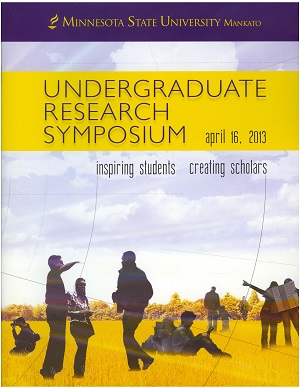Impacts of Toxic Wastes on Somali People Who Live Along the Coast
Location
CSU Ballroom
Start Date
16-4-2013 2:00 PM
End Date
16-4-2013 4:00 PM
Student's Major
Urban and Regional Studies
Student's College
Social and Behavioral Sciences
Mentor's Name
Raymond Asomani
Mentor's Department
Urban and Regional Studies
Mentor's College
Social and Behavioral Sciences
Description
The main principle of this research is to collect and report all available evidence of highly toxic wastes (HTW) dumped in Somalia to contribute a long term researches about toxics in Somalia. Since this case was a life-threatening case, I always had in my mind that I will one day conduct research about it. My passion has increased last year, when I did joint research project about” Rout causes of Somali piracy”. As the result that research has broadened my thinking and fortunately, last fall, I received McNair achievement program fund and I selected my research for this issue.
According to Greenpeace, many developing countries, especially African countries, have been victim of the adverse effects of highly toxic wastes (HTW) originated from the developed countries but the case of Somalia is particularly preoccupying. The country has been subjected to excessive illegal dumping operations of toxic and radioactive wastes for three decades. These wrong doing operations have taken place both along the coast and its adjacent land and had drastically effected on health, environment and the future prospect of sustainable development of the local population This research is based on authoritative sources and careful analyzed facts done by UN, private institutions, international NGOs with the same conclusion of toxic wastes dumped in Somalia. The conclusion of this research highlights desperate need of field experts and capacity building in support of greater funding for the effects of toxic wastes research since Somalia doesn’t have the capability to conduct those types of research.
Impacts of Toxic Wastes on Somali People Who Live Along the Coast
CSU Ballroom
The main principle of this research is to collect and report all available evidence of highly toxic wastes (HTW) dumped in Somalia to contribute a long term researches about toxics in Somalia. Since this case was a life-threatening case, I always had in my mind that I will one day conduct research about it. My passion has increased last year, when I did joint research project about” Rout causes of Somali piracy”. As the result that research has broadened my thinking and fortunately, last fall, I received McNair achievement program fund and I selected my research for this issue.
According to Greenpeace, many developing countries, especially African countries, have been victim of the adverse effects of highly toxic wastes (HTW) originated from the developed countries but the case of Somalia is particularly preoccupying. The country has been subjected to excessive illegal dumping operations of toxic and radioactive wastes for three decades. These wrong doing operations have taken place both along the coast and its adjacent land and had drastically effected on health, environment and the future prospect of sustainable development of the local population This research is based on authoritative sources and careful analyzed facts done by UN, private institutions, international NGOs with the same conclusion of toxic wastes dumped in Somalia. The conclusion of this research highlights desperate need of field experts and capacity building in support of greater funding for the effects of toxic wastes research since Somalia doesn’t have the capability to conduct those types of research.
Recommended Citation
Shiiraar, Ahmed. "Impacts of Toxic Wastes on Somali People Who Live Along the Coast." Undergraduate Research Symposium, Mankato, MN, April 16, 2013.
https://cornerstone.lib.mnsu.edu/urs/2013/poster-session-B/46




